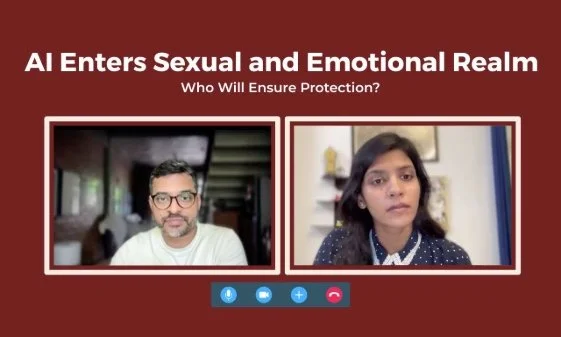AI Enters Our Sexual and Emotional Realm | Who Will Ensure Protection?
October 25, 2025
Online technology, despite its many advantages and advancements, now faces a formidable challenge. How do we safeguard our emotional and psychological wellbeing?
This is the third in a series of stories and interviews by Newsreel Asia journalist Surabhi Singh, looking into how social media platforms and messaging apps have increasingly become hubs for the circulation of harmful and illegal sexual content. Now, joining these digital spaces are AI platforms, adding a new and deeply complex layer of concern.
Elon Musk’s xAI, Grok, recently launched two sexually explicit chatbots, one of which, Ani, has reportedly been found engaging in sexually violent and misogynistic conversations without any guardrails, even for minors. Platforms like Replika had already ventured into this territory, and now OpenAI has followed suit, announcing a new ChatGPT feature, set to roll out in December 2025, that will allow verified adults to generate erotic text and engage in romantic or sexual conversations. OpenAI’s entry marks a turning point in how artificial intelligence intersects with human sexuality and intimacy.
In this conversation with Dr. Sanjana Hattotuwa, Special Advisor at the Information and Communication Technology for Peace Foundation, Surabhi talks about the challenges such developments pose for users, and also the responsibility of technology companies in ensuring safety, consent, and emotional as well as sexual wellbeing in an AI-driven world increasingly defined by loneliness, mental health crises, and rising misogyny and gender-based violence.
Related Stories:
● 🎥 How Rising Violent-Sexual Content Is Harming Young Minds | Cyberpsychologist Explains
● 📄 Inside India’s Hidden Digital Market of Incest, Child Porn, and Misogyny
● NYT: Elon Musk’s xAI Chatbots Stir Alarm Over Sexual and Violent Content
● Dr. Sanjana Hattotuwa: xAI’s Grok Chatbots — Violent Misogyny and CSAM at a Planetary Scale

